You're a jerk. If HR allows people to eat at their desks then butt out. Wear a mask.
I’m Vegan and Asked a Coworker to Stop Eating Meat Near Me — Now I’ve Landed in HR
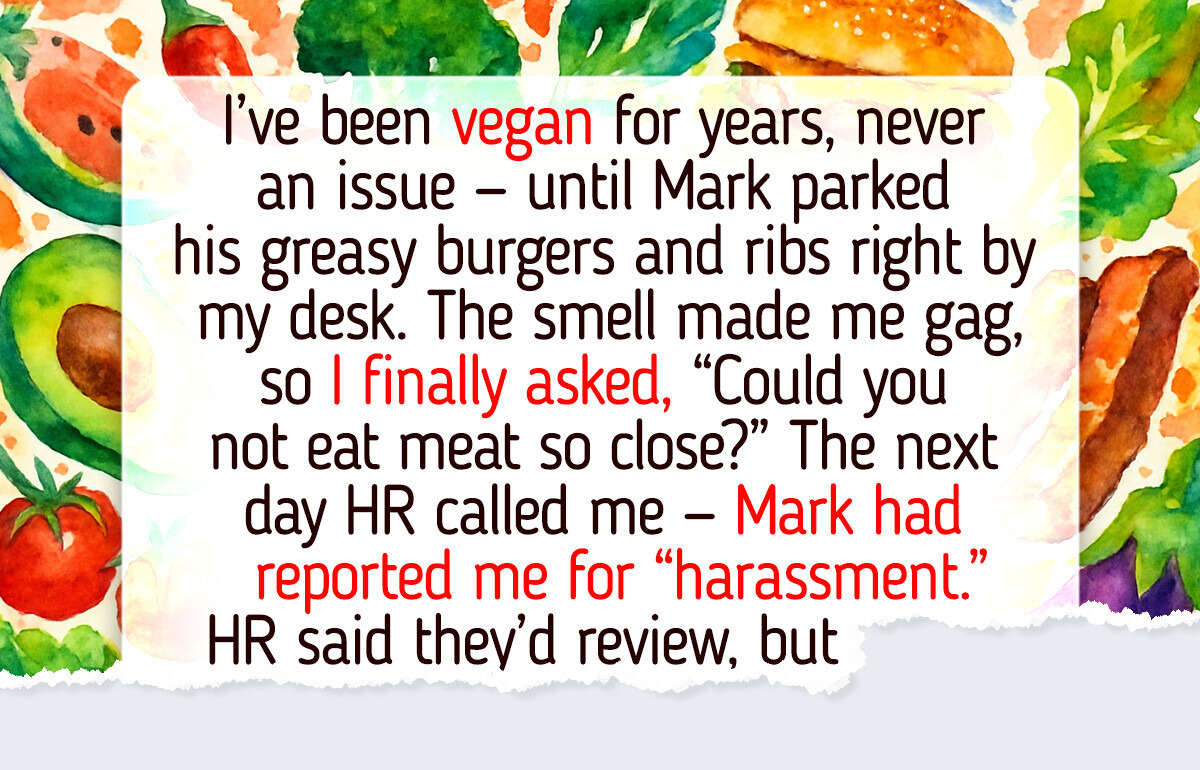
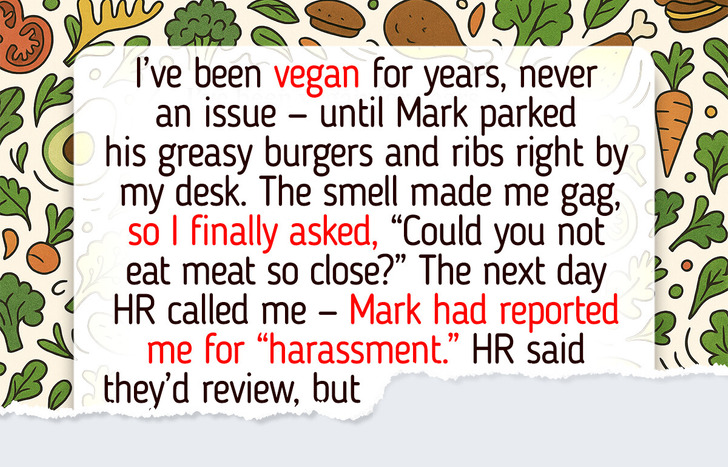
Workplaces are melting pots of habits, personalities, and sometimes... very different lunch choices. One of our readers found herself in a tricky situation after asking her coworker not to eat meat right next to her desk. What she thought was a polite request quickly escalated into an HR issue.
The letter:
“I’ve been vegan for years, and it’s never been an issue at work — until now. My coworker Mark loves eating heavy meat dishes right at his desk, which is only a few feet from mine. The smell makes me nauseous, and after weeks of trying to ignore it, I finally said: ‘Mark, could you please not eat meat so close to my desk?’
I thought I was being polite, but apparently not. The next day, HR emailed me to come in for a meeting. Turns out Mark reported me — saying I was harassing him and trying to ‘control his food choices.’
In the meeting, I explained that I wasn’t banning meat from the office, I just wanted a little consideration in shared space. HR said they’d ‘look into it,’ but now Mark keeps smirking at me, like he won. And honestly? I’m scared this is going to hurt my reputation at work more than his.”

Smart Ways to Handle Conflict at Work (and Keep Your Sanity)
Where there are people, there will be disagreements. A little tension can even spark creativity — but left unchecked, workplace conflict can drain your energy, hurt teamwork, and make every Monday morning feel like a battle.
The good news? With the right mindset, you can turn conflict into connection. Here are 9 practical ways to keep cool and handle clashes at work.
1. Be the first to break the ice
Don’t sit around waiting for your colleague to make the first move. Suggest a quick chat in a neutral space and approach it calmly. Sometimes, simply saying “Hey, can we clear the air?” is enough to soften the tension.
2. Attack the problem, not the person
It’s easy to feel targeted, but most conflicts come down to miscommunication or workload issues. Instead of “You always take credit,” try “I felt overlooked when the presentation credit wasn’t shared.” Same issue, less hostility.

Welcome to the real world. Just because you're vegan doesn't mean you can dictate where and what others eat. If you're that sensitive wear nose plugs.
3. Call in backup if needed
If talks stall, it’s okay to bring in your manager or HR. Their job isn’t to pick sides — it’s to guide the conversation toward a solution that works for both. Remember: companies lose big when good employees quit over conflict, so they have a reason to help.
4. Don’t fuel the fire with gossip
Venting to coworkers can turn small sparks into wildfires. Gossip creates cliques, spreads half-truths, and makes things worse. If you need to talk, confide in a friend outside work or take it to HR directly.
5. Ask yourself, “Could I be wrong?”
It’s not fun, but self-checking is powerful. Maybe you were short on time and snapped. Maybe you missed a deadline that set off others. Owning your part (and apologizing if needed) shows maturity and can defuse a lot of tension.
6. Find your common ground
You’re not enemies — you’re teammates with the same bigger goal. Highlight shared priorities like “We both want this project to succeed.” Framing it as “us vs. the problem” helps rebuild trust.
7. Keep a paper trail
If things escalate, protect yourself. Save emails, notes, or chat logs. Most of the time, you won’t need them — but if you do, you’ll be glad you kept receipts.
8. Deal with issues early
Letting things fester just breeds resentment. A quick, calm conversation now beats a months-long cold war later. But if emotions are high, give yourself a day to cool down before responding.
9. Stay positive (yes, really)
Optimism isn’t naïve — it’s strategic. If you show up ready to problem-solve instead of fight, others are more likely to follow your lead. Protect your headspace, keep perspective, and remember: no office drama is worth your peace of mind.
Maybe the real challenge isn’t meat or no meat — it’s learning to chew on compromise.
15 Stories That Prove Kindness Isn’t Weakness, It’s Inner Fire
Comments
Related Reads
14 Stories That Prove Kindness Takes a Moment, but Means the World

12 Touching Ways People Turned Grief Into Works of Art

15 Real-Life Stories That Prove Kindness Is Part of Being Human

12 Life Moments Where Quiet Kindness Played the Main Role

I Refuse to Support My SAHM Wife After Discovering Her Secret

A Stranger Humiliated My Daughter at Disney World—He Picked the Wrong Mom to Mess With

I Refused to Expose My Salary to My Parents, Now My Life Is Falling Apart
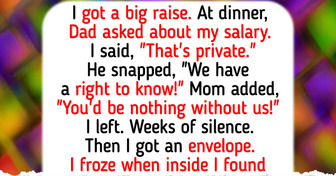
10 Moments Where Kindness Didn’t Argue—It Acted

I Refused to Let My Boyfriend Discipline My Child—He’s Not His Real Dad
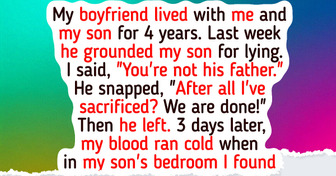
18 People Who Found Out That Small Acts of Kindness Are the Pathway to Happiness
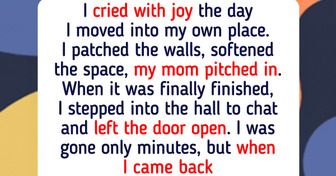
10 Hospital Workers Who Prove Kind Heart Is a Powerful Medicine

14 Stories That Prove Kindness Is the Most Powerful Force on Earth
